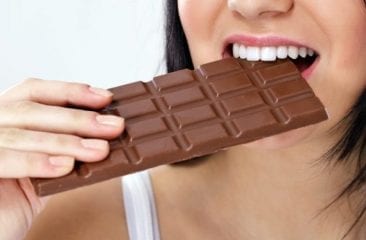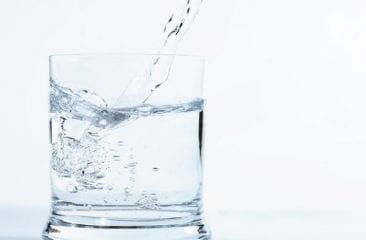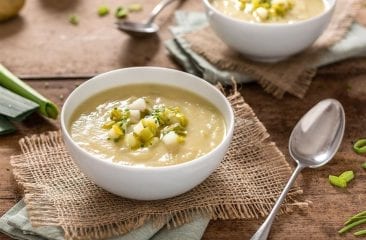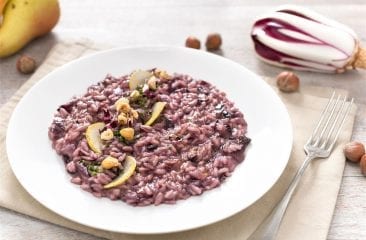There are many myths about healthy eating and driving. They have been repeated so often over time that most of us believe them, no questions asked. We’ve taken a few popular ones, did a little digging, and are here to debunk them…
Myth #1: Don’t Eat After 6 PM

Conventional wisdom has changed over the years. The current take is that a calorie is a calorie. When you consume it has little to no influence on your weight or overall health. The golden rule is not to eat a heavy meal 3-4 hours before you plan to go to bed. If you plan to go to bed at 10pm, then yes – you shouldn’t have a meal after 6pm. If you stay up longer, you can have dinner at a later time.
Don’t be hungry: You are not a mogwai, you can have food whenever you want! Do be reasonable – portion controlled snacks are a great way to fight cravings while not digging into that gallon tub of ice cream. Moderation is key, not starving yourself!
Myth #2: Chocolate Makes You Gain Weight

Chocolate makes you gain weight and that is the absolute truth. It’s one of the most timeless myths! Chocolate does contain a lot of calories, but its constituent carbohydrates are quickly digested and consumed by our body. You might want to give preference to dark chocolate over milk chocolate, as it contains antioxidants. Overall, there’s certainly nothing wrong with you enjoying your favorite treat as long as you take it in moderation and most importantly it makes you happy. Stick with this little piece of Spice Girls wisdom: “Too much of something is bad enough”.
Myth #3: Drink Eight 8 Oz Glasses Of Water A Day

There is no science behind this. Hydration requirements are HIGHLY individual. There is no precise recommendation for the daily amount of water people need. What’s the best thing you can do? Listen to your body! If you’re thirsty, drink up. And adjust depending how active you are, whether you’re outside during a heatwave- things like that. Do not waste money on a product telling you when to drink water. Your body isn’t on a strict timer and will let you know when it’s time for a glass of water!
Myth #4: Don’t Drink More Than One Cup Of Coffee Per Day

Most coffee connoisseurs will laugh at this, yet many people still believe that drinking more than one cup of coffee a day is harmful. Insomnia, irritability and heart palpitations are all blamed on the dark drink. Caffeine is a natural stimulant. When you drink coffee, it is absorbed almost instantly and flushed out of your system within 4-5 hours. There’s absolutely no problem with drinking coffee throughout the day in reasonable quantities. See myth 1 on when to stop. You may, however, want to pay some attention to how much sugar is going in your cup.
Myth #5: Brown Sugar Is Healthier Than White Sugar

Brown sugar is sugar with molasses. White sugar is just refined sugar. All granulated sugars have more or less the same nutritional values and contain roughly the same calories. In general you should always pay attention to your sugar intake, but which one use depends on mostly on personal taste and type of use.
Myth #6: Frozen Fruits And Vegetables Are Less Nutritious

Frozen fruits and vegetables can be as nutritious as fresh ones. As long as they have been properly frozen shortly after harvesting. A technique called “flash-freezing” that’s been around for ages makes sure that frozen food keeps most of its nutrients.
You can even flash-freeze yourself using your Liebherr refrigerator! After activation of the SuperFrost function, the temperature in the freezer compartment is quickly reduced to -25° F. Under these conditions, produce is frozen rapidly, retaining the maximum amount of nutrients. SuperFrost turns off automatically, so you don’t have to worry about a thing!
Myth #7: Raw Vegetables Are Healthier Than Cooked Ones

The great thing about vegetables is that most of them taste good either raw or cooked. In most cases your personal preference gets to make the decision and you can’t go wrong. Cooking does have a slight edge though: boiling and steaming in particular better preserve the antioxidant properties of vegetables.
Disclaimer: The article “Seven Myths About Healthy Eating & Drinking You Need To Stop Believing” was written for entertainment purposes. It is not intended and should not be interpreted as medical or lifestyle advice.





